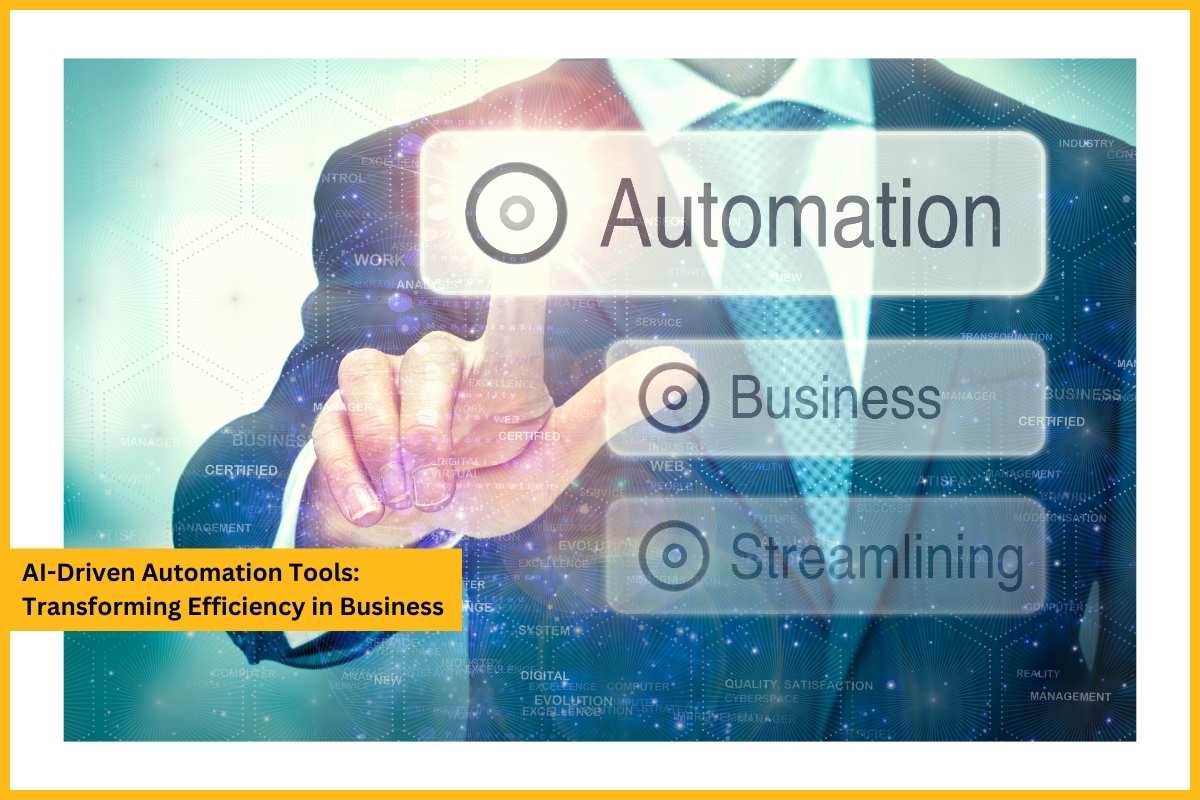In today’s fast-paced digital landscape, businesses continually seek innovative solutions to enhance productivity and streamline operations. One of the most significant advancements in recent years is the emergence of AI-driven automation tools. These tools harness the power of artificial intelligence to automate repetitive tasks, analyze data, and make informed decisions, enabling companies to focus on their core objectives. This article explores the benefits, applications, and future of AI-based automation tools across various industries.
Understanding AI-Driven Automation Tools
It utilizes machine learning, natural language processing, and other AI technologies to execute tasks that traditionally require human intervention. These tools are designed to enhance efficiency by automating routine processes, thus reducing the potential for human error and freeing up valuable time for employees to engage in more strategic activities.
The integration of AI in automation tools means that they can learn from previous data and adapt to new situations. This adaptability allows businesses to optimize their operations continuously, making AI-driven automation tools a vital component of modern enterprise strategies.
Key Benefits of AI-Driven Automation Tools
1. Increased Efficiency
One of the primary advantages of AI-based automation tools is their ability to enhance operational efficiency. By automating repetitive tasks such as data entry, invoice processing, and customer inquiries, these tools significantly reduce the time spent on mundane activities. This increased efficiency allows employees to dedicate their time to higher-value tasks, such as strategic planning and creative problem-solving.
2. Cost Savings

Implementing AI-driven automation tools can lead to substantial cost savings for businesses. By minimizing the need for manual labor, organizations can reduce overhead costs associated with hiring and training staff. Additionally, these tools help to eliminate errors, further decreasing costs related to corrections and rework.
3. Enhanced Data Analysis
AI-driven automation tools excel in processing and analyzing large volumes of data. They can identify patterns, trends, and insights that might be overlooked by human analysts. This capability is particularly beneficial for businesses that rely on data-driven decision-making, as it allows them to make more informed choices quickly.
4. Improved Customer Experience
Many businesses are leveraging AI-driven automation tools to enhance customer interactions. Chatbots and virtual assistants, powered by AI, can handle customer queries 24/7, providing instant responses and support. This immediacy not only improves customer satisfaction but also allows human customer service representatives to focus on more complex issues.
5. Scalability
As businesses grow, so do their operational needs. AI-based automation tools are inherently scalable, meaning they can easily adjust to increased workloads without the need for significant additional resources. This scalability ensures that companies can maintain high levels of service and efficiency as they expand.
Applications of AI-Driven Automation Tools
AI-driven automation tools have a wide range of applications across various sectors:
1. Marketing

In the marketing realm, v can analyze customer behavior and preferences to create personalized marketing campaigns. These tools can segment audiences, optimize ad placements, and even generate content tailored to specific demographics. This level of personalization increases engagement and conversion rates.
2. Human Resources
In human resources, AI tools can streamline the recruitment process by automating resume screening and scheduling interviews. They can also assist in employee onboarding and training, ensuring a smoother integration process. Additionally, AI-driven analytics can help HR departments assess employee performance and satisfaction, guiding strategic decisions.
3. Finance
Financial institutions are increasingly adopting AI-driven automation tools for tasks such as fraud detection, risk assessment, and transaction processing. These tools can analyze transaction data in real time, identifying anomalies that may indicate fraudulent activity. This proactive approach enhances security and minimizes potential losses.
4. Supply Chain Management
AI-powered automation is revolutionizing supply chain management by optimizing inventory levels, forecasting demand, and managing logistics. AI-based automation tools can predict supply chain disruptions and suggest alternative solutions, ensuring businesses remain agile and responsive to market changes.
5. Healthcare
In the healthcare sector, AI-driven automation tools are transforming patient care and administrative processes. From automating patient record management to assisting in diagnostic procedures, these tools enhance operational efficiency and improve patient outcomes. Additionally, AI can analyze patient data to identify trends, supporting proactive healthcare measures.
The Future of AI-Driven Automation Tools

The future of AI-driven automation tools looks promising, with advancements in AI technologies continually expanding their capabilities. As machine learning algorithms become more sophisticated, these tools will increasingly be able to handle complex tasks and make autonomous decisions.
Moreover, the integration of AI with the Internet of Things (IoT) will create new opportunities for automation. Smart devices equipped with AI can communicate and collaborate, further enhancing operational efficiency across industries.
However, as organizations adopt AI-based automation tools, they must also consider the ethical implications of AI. Ensuring transparency, accountability, and fairness in AI decision-making will be critical to gaining and maintaining stakeholder trust.
Conclusion
AI-driven automation tools are revolutionizing the way businesses operate, offering significant benefits in efficiency, cost savings, and enhanced customer experiences. As these tools continue to evolve, they will play an increasingly pivotal role in shaping the future of work across industries. Organizations that embrace AI-based automation tools today will position themselves for success in an increasingly automated and data-driven world. By leveraging the power of AI, businesses can not only enhance their operations but also drive innovation and growth in an ever-changing marketplace.
In summary, adopting AI-based automation tools is not merely a trend; it is a strategic imperative for businesses aiming to thrive in the digital age.
Did you find this article helpful? Visit more of our blogs! Business Wolf Magazine






